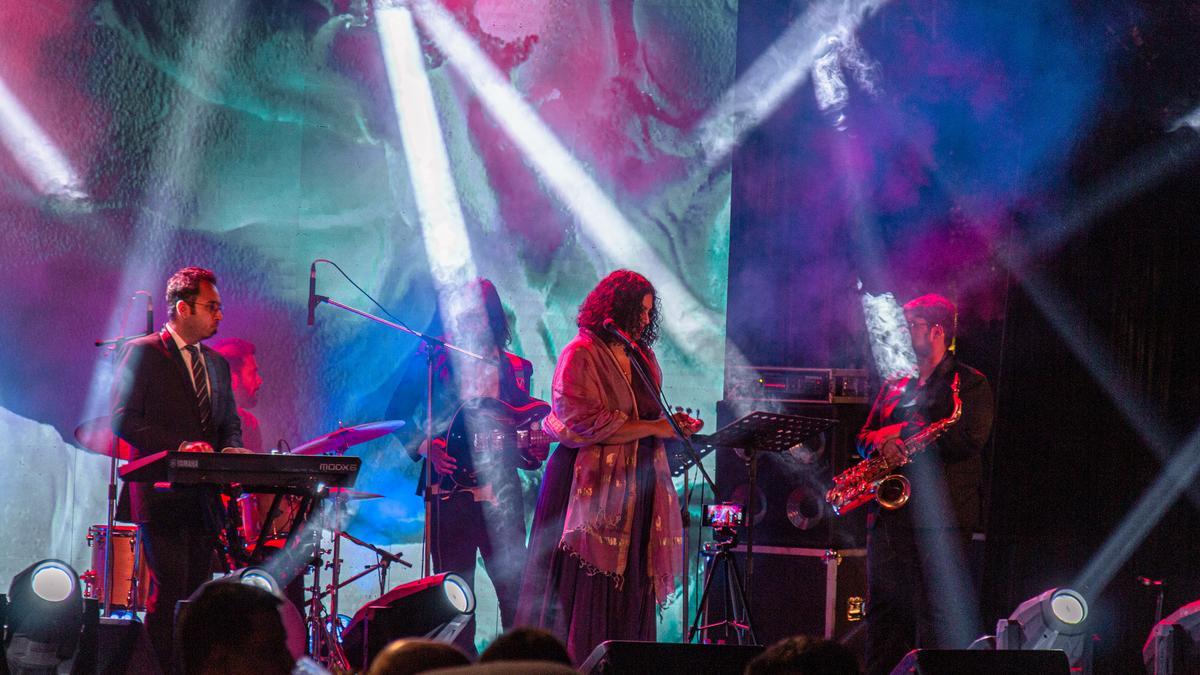
If you explore the ‘Music@Trincas’ section on the official website of the iconic Kolkata establishment, you will find a fascinating tapestry of the city’s history in both food and entertainment. One compelling story transports us back to 1963 on Park Street, the bustling epicenter of Calcutta’s dining scene. Picture this: Little Willie Walters, perched on a stool at Magnolia, enjoying an ice cream. The warm Kolkata air clashes with the air conditioner as the dessert begins to lose its shape. A three-piece jazz band harmoniously fills the room with soulful tunes. Then, the temperature seems to rise as a stunning woman in a fish-tailed dress, embodying the glamor of a Hollywood star, gracefully enters. Captivated by the melody, Willie is equally entranced by the lady’s wink. In his wonder, he drops his ice cream, forever binding Jazz and the Trincas experience in his memory.
Flash forward, and Willie, inspired by that unforgettable moment, would carve his niche in Kolkata’s extensive jazz heritage. Earning his place as an esteemed bassist, he continually strived to push creative boundaries in music. Before his passing earlier this year, Willie was instrumental in igniting a jazz revival at Trincas with The Willie Walters Quartet. This ensemble, founded in 2022, brought new life to weekend afternoons at Trincas, offering performances every Saturday and Sunday from 1 pm to 3 pm. “Willie Walters had this unique gift for transforming musicians who hadn’t previously played in a jazz ensemble into a cohesive band,” recounts Anand Puri, a third-generation restaurateur, who has managed Trincas since 2019. Puri’s parents took over the tearoom and bakery, originally established in 1927, in 1959, converting it into a venue offering live music and floor shows.
Reflecting on the resurgence, Anand acknowledges that while jazz garners attention today, genuine understanding of the genre is rare. “We focused on jazz standards, maintaining a light atmosphere so the music could resonate with everyone. This approach revitalized jazz in Kolkata, making every Sunday afternoon special,” he adds. Initially slow weekend lunches at Trincas have experienced nearly a 100% increase in occupancy, signifying jazz’s powerful attraction.
Beyond Trincas, jazz specials and live nights have grown in popularity across India’s restaurant and bar scene.
. Although weekly or monthly dedicated jazz nights are few, the genre is increasingly appreciated for creating a relaxed yet vibrant ambiance, perfect for an enjoyable night out.
During a recent visit in April to AMPM Kolkata, a notable cocktail bar in the city’s burgeoning nightlife scene, I was struck by the variety of music events hosted there, despite the venue not yet featuring a dedicated jazz night. However, Mahima Awasthy, a marketing consultant and AMPM regular, mentions the credibility that music director Paddy [Pradyumna Manot] lends to their music program. “Jazz nights are delightful and appeal to a broad audience,” she notes, highlighting how the cozy cocktail bar atmosphere complements the genre.
One steadfast supporter of jazz in India is The Piano Man Jazz Club, conceived in 2015 by Arjun Sagar Gupta, a classically trained pianist. This establishment aspires to raise awareness and improve access to diverse musical genres. Arjun notes, “Initial obstacles included a lack of venues and systemic issues, like artist compensation and access to professional equipment. Often, jazz is merely a trendy backdrop rather than central,” he says. In response, The Piano Man Jazz Club opened its second location in Gurugram in 2019.
In Bengaluru, jazz assumes a significant role at ZLB23, the Kyoto speakeasy at The Leela Palace, as part of an eclectic music program that blends Bebop Jazz, Rock and Blues, Latin, Soul, Bossa Nova, and Carnatic Jazz. “We feature a diverse array of bands globally, including MaMoGi—a group renowned for its fusion of progressive rock, electronic music, and jazz,” states Madhav Sehgal, area vice president — South India, The Leela Palaces, Hotels and Resorts.
For aficionados unfamiliar with jazz, easing them in is crucial. Arjun notes that at Trincas, for instance, the quartet performs known vocal pieces, offering a lighter introduction than purely instrumental styles, making jazz more appealing to a broader audience. This departure from jazz serving as mere background music in elite settings merges dining and entertainment.
Pune-based jazz singer Sonia Teresa Saigal, with over three decades of experience, emphasizes the presence of fresh talent, highlighting the need for singers to fully commit to jazz to render authentic performances. She often encounters requests for ‘jazzy’ rather than true jazz interpretations, stressing the importance of alignment between the venue’s vibe and the audience’s musical preferences.
Parvati M Krishnan, a lead singer from New Delhi, points out that while some are drawn to jazz for its trendiness, others in India genuinely appreciate its essence, fostering a rich culture of appreciation. She stresses, however, that proper investment in top-quality bands and the promotion of genuine talent are crucial to supporting a sustainable jazz scene.
In essence, while challenges remain, from comprehension to investment, venues like Trincas are playing instrumental roles in harnessing the renewed interest in jazz, proving the genre is not just a fleeting trend but a revitalizing art ready for India’s diverse music landscape.












